Text

Joy Sullivan, “Want", Instructions for Traveling West
27K notes
·
View notes
Text
i highly recommend for women and girls to be intellectually curious and difficult to shame
80K notes
·
View notes
Text
well first of all being covered in blood is inherently erotic AND romantic. So jot that down
11K notes
·
View notes
Text
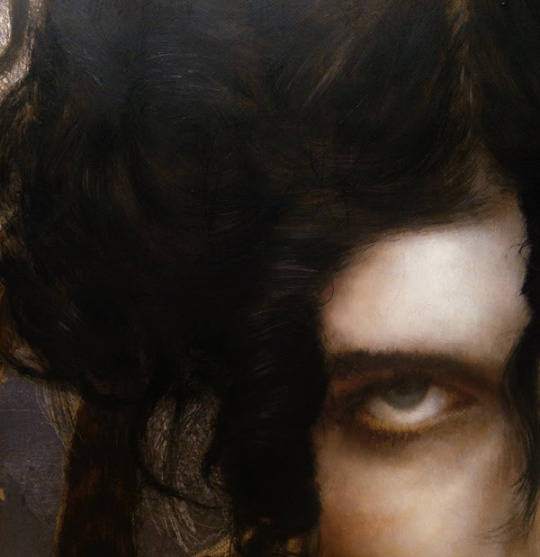



Women who don't hold back their tongue vibe. 1 - 2 - 3 - 4
#wrong hair colour right vibe#✤ inspiration — all that blood was never once beautiful / it was just red
6K notes
·
View notes
Text

Sylvia Plath, from a journal entry featured in "The Unabridged Journals of Sylvia Plath,"
21K notes
·
View notes
Text

Detail: The Mennonite Preacher Anslo and his Wife, Rembrandt Harmenszoon Van Rijn (Dutch, 1606-1669)
5K notes
·
View notes
Text
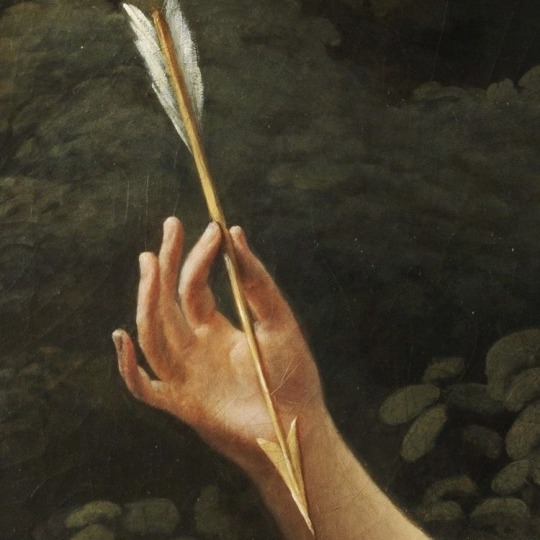

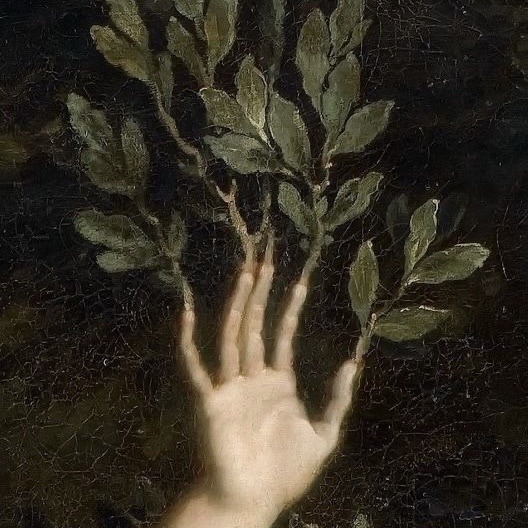
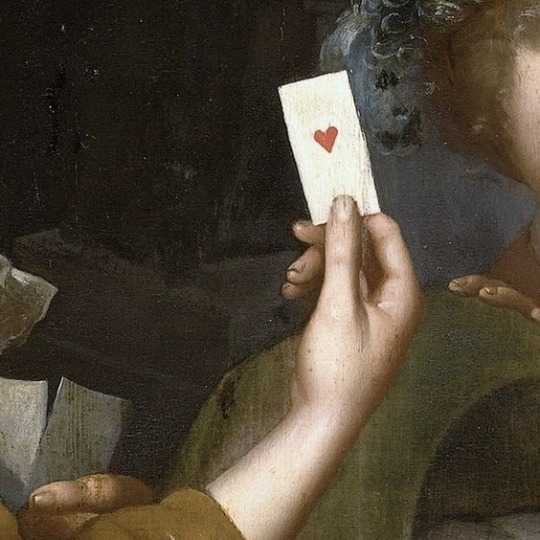
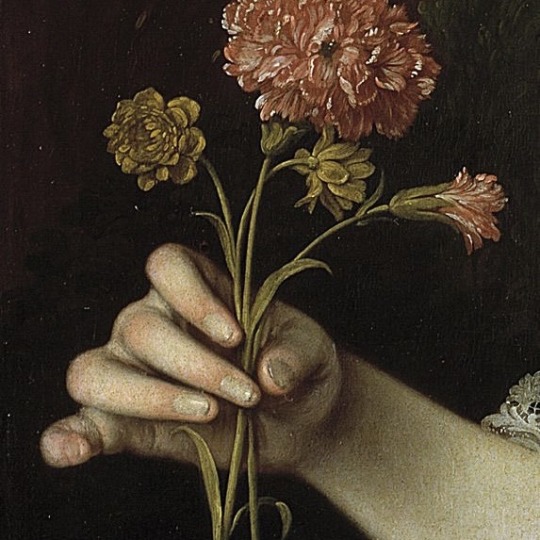
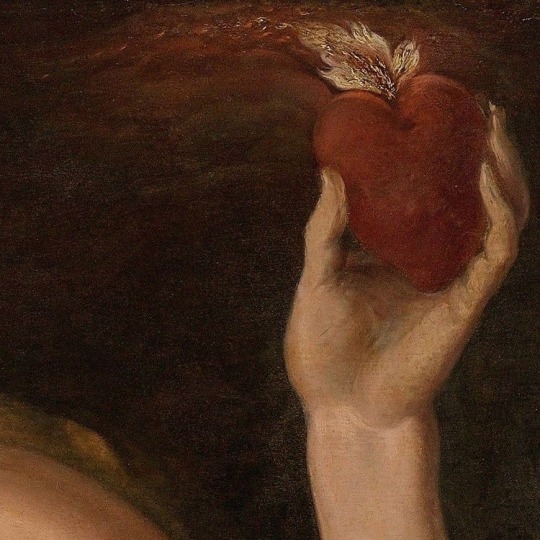
… in the palm of your hands . ♡
19K notes
·
View notes
Text

— James Baldwin from Giovanni’s Room (1956)
7K notes
·
View notes
Text
uh oh! (sexualizes an old man)
32K notes
·
View notes
Text

Silver haired ladies
1K notes
·
View notes
Note
There is the flashing of steel, the guttural bellow of a blunderbuss and shrapnel blooming from the barrel, and yet again (again, again, countlessly brought to ruin, he can't do as the Mother asks--) a hunter is carved to pieces by a huntress. But the hunter is not blooded, and thus even in a dream does not bleed; sea water pours from the ruin made of his throat blade-kissed, drenched the floor where the dagger of her off-hand has plunged into his belly, and all the while a hunter can only flail against the terror of her before he's washed away. Time and again, time and again does the dream end only to resume once more, outer eyes closed in sleep only for those inside to open wide, and Samuel Whist (aliases clinging to him like drenched clothes, sodden feathers clumped and ash etched into fingers, yet in a dream a man cannot lie--) finds himself dead at the hands of a woman whose face haunts him. No matter the dirty trick, no matter the spitfire of the riflespear nor the strength desperation grants him, Samuel Whist is flayed apart by the swords of a stranger whose death this terrible dream reocurring cries out for. He's slipping away yet again even now, her hand plunged through his frail chest to pierce the uneven beat of his heart, and all he can do is clench tightly to her shoulders with shaking hands even as his knees buckle. His grey eyes are blown wide with fear and desperation, and likewise fearful is the hoarse croak of his voice as once more he disappears with the sigh of the endless sea. "What've ya done? Kosm help me, what did ya do?"
Maria did not flinch as he clung to her. Clung like the dying always did, as though her bones might become an anchor, her sinew a rope against the undertow. His hands, streaked black and stinking of fire and fish-guts, pressed into the shoulders of her coat, already drenched with saltless sea.
The floor of the astral chapel ran slick with brine, rivulets carving paths between warped floorboards, curling about her boots. A child of the sea, she thought – not of it, never of it, for those belonged to another – no, this one had seen the sea, had been broken on its salt-slick altars.
His question echoed and she felt it ripple along her spine like a blade drawn slow from its sheath.
“What’ve ya done? Kosm help me, what did ya do?”
Ah, that name.
It curled its way through her like a worm, soft-bellied and slick. Kos. Kosm. She dared not speak it. Her lips, sewn shut by shame of long years now, would not permit its utterance without trembling.
Now here he was again.
Again and again.
Like the tide.
Maria withdrew her hand from his chest with a slow, fluid grace, the gesture not unlike a caress – were it not slick with cold, un-blooded ruin. Sea water poured from him like a confession, pooling between them. The smell of salt and old iron. The illusion of a body. The dream of a man. Her own hands trembled faintly, even as they were still. Beneath her ribcage, something long-dead stirred.
She had killed him before. Again and again. She would kill him tomorrow and all tomorrows after.
This time, he had asked. He had looked at her not as a beast or a foe, but as someone who should answer.
Maria turned her face, shadow-flicked beneath her wide-brimmed hat, her silver hair damp with mist and fury. Her eyes, grey as mourning, sought him even as his form began to blur, sluicing away with the dream. He was not like the others. He came apart like a man caught between one world and the next – neither wholly living nor wholly dead. Not Vileblood, not Choir, not Beast. Something else.
He reminded her of the fishermen.
She had killed many of those, too.
“No god comes for us,” she said, voice gentle and low, a the murmur of water licking the stone walls of a well. “And if one did, you would not like what it whispered.”
Maria stepped back, her sword weeping with salt. The other still buried in his gut as though it could pin him here, keep him from slipping away again, back to the wet dream from which he came. She stood alone in the wake of him, ankle-deep in the sea that was not sea. Brine slid down her cheek, but she had not wept, not in years.
In her stillness, she remembered a shore where children drowned with smiles, where mothers opened their bellies to birth horrors crowned with coral, where gods lay dead beneath the tide but still dreaming.
He would come again. As they all did. Again and again.
Maria sheathed her sword with a click, like the closing of a coffin lid.
The lantern flickered.
The bells began again.
#maria said get rekt#really though this was such a beautiful ask and i'm sorry it took me several lifetimes to answer it#i hope this works!#maria and samuel tbt#fishermcn
1 note
·
View note
Photo
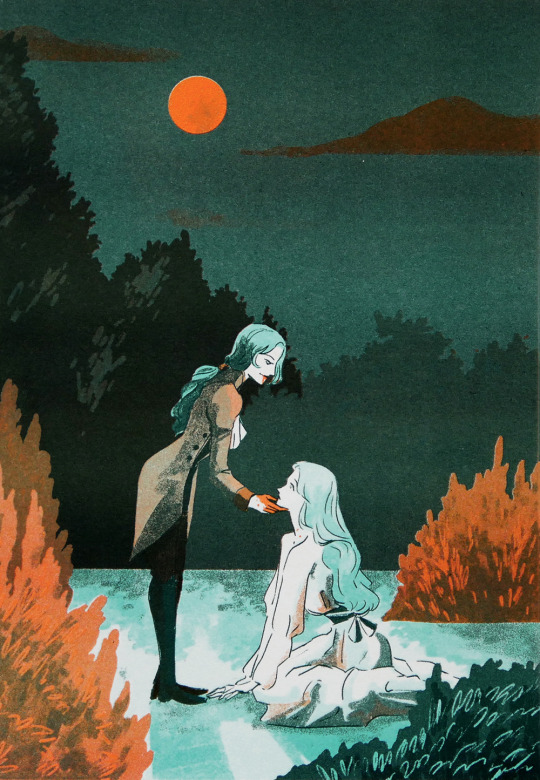
Lured into a dark grove, a young woman encounters a sinister beauty under an orange moon. Riso print (Orange/Mint/Hunter Green)
2K notes
·
View notes
Text
The chamber stank of old fire, of parchment burned to ash, of waxen seal and splintered bone. Somewhere, far off in the corridors beneath the Grand Cathedral, a bell tolled low and slow. Moonlight, thin as a sliver of ivory, cut through the stained glass and spilled its pale blood across the stone floor, catching in the silvered edge of Maria’s blade where it hung at her hip, untouched.
She stood motionless, framed by the vaulting shadows that fell like cathedral veils from the high rafters. Her gloves were stained – soaked through at the wrists, blackened with something that was not wholly blood – and her breath came short, fast, as though she had run all the way from the jaws of a nightmare itself.
Laurence’s voice was calm. The kind of calm that masked a ruin too vast to name. She did not turn to look at him yet. She was not braced to see that familiar fire, banked but still burning in his eyes. Instead, she let the silence return. Let it spool out between them like a long red thread, trailing back into the dark where she had failed. Where they had both failed.
The child had screamed like a thing being born backwards. The mother’s mouth had split wide with revelation and madness. The depths had opened and something ancient and glistening had looked back.
She pressed a hand to her chest, feeling the heart hammering in her ribs as if it were a thing that wished to escape. Cowardly, so eager to flee the cage when it should have been still.
Laurence spoke again. His voice came not like a comfort but like an exhumation.
“We’ve come into contact with power, so we think it should be unlimited.”
There was dust in his voice – echoes of Byrgenwerth, of lecterns crammed with yellowed scrolls and secrets better left unread. She remembered him there, bright-eyed and sanctimonious and burning with promise.
“You can’t think that you can do everything.”
Maria turned her head at last, slowly. Her face was pale as porcelain, but her eyes were two white suns. There were no tears. She would not weep. Blood refused her that indulgence now. Old humanity had been burned away in the hunter’s workshop, boiled off like fat in a crucible. Her voice, when it broke the silence, was raw silk, fraying at the edges:
“You speak as though we are the ones who decide what is possible. Do you truly believe it to be so?” To her own ears, her voice sounded like that of a child. “If that is the case, then I do not wish to be the hand that fails.”
Yet her hands trembled. She curled them into fists. Then, softer:
“I was right there…”
@lumenfall // “I was right there! I should have done something!” – for Laurence.

There is a frustration in Maria's eyes that Laurence recognizes, that he has felt many times since the first time he peered into the darkness of the Catacombs.
"We've come into contact with power, so we think it should be unlimited." He pauses, a distant fire in his eyes. He'd gone to Byrgenwerth thinking he would save the world--or at least the small piece of it he inhabited. He's failed too many times.
"But it isn't unlimited." Not for the two of them. Not yet. "You can't think that you can do everything."
#letting this sit in my drafts for a full year is all but unforgivable#no pressure to continue this#i just couldn't leave it unanswered forever#maria and laurence tbt#aranostra
3 notes
·
View notes
Text
✤ @vernades // cont.
The rain fell with such intent it seemed to scour the very skin from the world. Ash and blood diluted into thin rivulets, crawling over the stones like slugs of memory, tugging at the hems of boots and skirts with childish insistence. Somewhere in the distance, something moaned long and low and wet, as if Yharnam itself were nursing a wound.
Lady Maria stood just inside the threshold of the building, a place that may once have been a boarding house, or a parlour, or perhaps a butcher’s den. Either way, it scarcely mattered now. All places in Yharnam, after a time, began to resemble one another. Blackened woodwork, walls mottled with mildew and old handprints, the scent of soot stitched into the grain. The windows had been broken, long ago, but someone – perhaps a desperate survivor – had stuffed them with shorn linens, bloodless now and stiff with grime.
She turned her head to glance at her companion. Their face was spattered with flecks of char and dried blood, burn-scars patterning their arms like relics or hieroglyphs. Power clung to them like steam rising from a battlefield corpse.
Not through the most conventional means, admittedly, they had said.
“You are of the Church,” Maria said quietly. Her voice was low, melodic, a little tired. “Yet you make fire from holy oil and spite.”
There was no accusation in her tone. It was the same she might have used once upon a time when describing rare bones at Byrgenwerth or the peculiar transparency of a certain sea slug. Curiosity, thick as blood.
A bead of rain traced down her temple, slow and cold as a kiss from beyond the grave. She did not move to brush it away. Instead, she stepped closer, slow-footed, boots light through the mire the storm had coaxed from the floorboards. A warmth had begun to gather at the edge of her vision. She realised that the incense still hung in the air. It reminded her, faintly, of burnt oranges, clove, saltpeter, or the inside of a temple long buried by sand.
Their presence was as vast as the interior was narrow. Maria felt, even without looking, the raw thrum of elemental will. Like standing beside a lit brazier and pretending not to notice the warmth. Yet for all that, there was still the line of their shoulders – sloped, momentarily unsure. The heaving of their chest as they recovered breath. Maria knew that rhythm. The human wound of survival.
Outside, the city gnawed on itself. Above, the sky opened like a split throat.
“I am well,” she said, and the faintest smile touched the corners of her mouth. “And grateful for this encounter, though I do not know your name. Might I have it, good hunter?”
2 notes
·
View notes
Note
It's his eye, more than anything, that communicates the man's age; the one good blue eye gives her an even stare from across the table, the rest of his craggy, bearded face kept carefully neutral. For much of the work, they operated in different spheres: he was one of Ludwig's men, his gigantic frame better suited for the heavy swords and hammers thereby assigned to him. One such sword sat, sheathed, against the back of his chair.
There are other signs, of course: the thick beard and long hair has long gone white, and a combination of time and trial has carved lines into his cheeks, driven deep furrows into his forehead. But it remains the eye - alert in the way that only the echoes of desperate terror - that betrays him most.
"Right, then," he says. "They call me Gorm - Witchfinder, by trade. Told me one of Gherman's best would be suited for, well, finding a witch."
He pushes a thin and fraying bit of parchment across the table. The document outlines reports from other Church hunters, a few statements from widowed loved ones, evidence of heresy out in the woods.
"Charnel Lane," Gorm mutters. "Supposedly the elderfolk out that way have decided to begin kidnapping some of our own. One turned up along the path missing both eyes, so maddened and suffering that our man saw fit to put him down as a mercy."
He nods his head at the sword behind him.
"So they've enlisted my expertise to handle the issue," he says. "Besides, I've only got the one eye left, so theory holds that the elderfolk might not be interested in little old me."
A grin - as old and angry as anything else about the man.
"Still - best to have someone watching my back, and I'm told you're the best the Workshop has to offer," he says. "I'll be blunt - you're not being conscripted. That's not how I operate. Given your prior work with the Workshop, I think anything involving this sort of...pursuit might be of interest to you, but I'll not hold you at swordpoint to do aught.
I am asking the good lady to walk with me in the woods, and see to it that nobody else gets hurt. What do you say to that?"
--from @gormlessthing
Lady Maria sat still as death, slender fingers folded one over the other, the creak of old leather and the soft sough of the rain outside the chapel the only sounds brave enough to linger in the silence that followed his question.
She watched him.
That eye.
It bored into her with a clarity that no mirror had ever offered. Blue, but not the blue of summer skies or cathedral glass. No, it was the colour of frost-bitten veins, of the last flare of lucidity in the half-drowned, of the clarity that sometimes strikes before the brain expires entirely. The eye of a man who had seen something peer through the world’s veil and had not looked away.
And yet.
He grinned, all crag and cliff-face and contempt for comfort. Something in her – the dead thing in her chest that beat like a blood-starved bird – shuddered against its cage.
Her gaze dropped to the parchment. Yellowed like old bone. She did not touch it. The words were already inked across her mind by their echo in his gravel-thick voice. Missing both eyes. Mercy killings. Elderfolk. A name she had heard whispered in the alleys behind Byrgenwerth’s empty dormitories, in the litanies of madmen who forgot to die.
Charnel Lane.
Maria breathed.
Not for effect, not for drama, but because something in her had almost forgotten how.
She was beautiful, still, though she wore it like penance. The fine lines of her face were half-shadowed beneath the wide brim of her hat and her mouth, pale as a newly-blooming bruise, twitched faintly in thought. Her cloak hung damp around her, its blackness soaking up the dim firelight. Behind her, her Rakuyo leaned against the stone wall.
“I was told once,” she said, voice low. “That the woods remember all who trespass. That the trees whisper names not spoken in years. That if you listen too long, too closely, you begin to hear your own.”
Her gaze lifted to him again. Her eyes – those terrible, searching, colourless eyes – held a weariness too vast to be measured in years alone. Within them, a cold fire to match his own.
Outside, the rain grew bolder, lashing the rippled glass like a warning.
“You ask me to walk with you into the woods,” she said, rising. She moved like a dream half-remembered – graceful, but not gentle. “To that I say: Let us walk, Witchfinder.”
She turned her back to him, fastened her cloak, slung her weapon across her spine. A movement she had done so many times it no longer belonged to conscious thought. Her voice was very soft.
“And let us see if the trees remember me.”
1 note
·
View note
Text
ooc . I had been thinking of retiring Maria, but then came Chez and Calis to the rescue. Thanks guys. ♡
1 note
·
View note
Text
THE MUSE .
name . Maria Adela Ianthe Verlaine Orsithe
gender . Cis-female
sexual orientation . Bisexual
hair colour . Silver-grey
eye colour . Pale grey
height . 6’4” ( 193cm )
Born of noble blood and raised within the cold stone halls of Cainhurst Castle, Lady Maria was expected to embody grace, refinement, and obedience. Yet from a young age, she found the stagnant traditions of her lineage stifling. Tales of valiant knights and heroic deeds stirred something fierce in her heart – a yearning not to be served, but to serve, to fight, to protect.
In Cainhurst, there were no swords for women, only silver mirrors and courtly games.
Unable to chase her dream through the sanctioned channels of her station, Maria sought another path. She enrolled at Byrgenwerth under the scholarly pretext of studying Botany, but her true motive was to seek out Gehrman, the founder of the Hunter’s Workshop. She found him and he welcomed her.
Gehrman recognised in Maria a rare resolve and, against the grain of expectation, he trained her. In time, she surpassed even his sternest hopes, becoming one of the first and finest hunters of the Workshop. Elegant and unflinching, Maria was revered for her skill with the Rakuyo.
Her ascension reached its cruel summit in the Fishing Hamlet. There, under Gehrman’s command and the watchful eyes of the scholars, Maria participated in a raid that left her soul irrevocably scarred. The villagers were not beasts – they were people. Their cries haunted her, their blood clung to her hands no matter how often she tried to wash it away. The sin of the hamlet was not just its secret, it was the silence that followed.
Feeling betrayed by her mentor and shattered by guilt, Maria abandoned the Workshop and laid down her blades. She retreated to the Research Hall, where she took up the role of caretaker, soothing the moaning patients subjected to inhuman experiments. She believed this work to be her penance – an attempt to salve the wound within her by easing the suffering of others.
But the horror only deepened.
In the end, even mercy proved hollow. Surrounded by madness and ruin, Maria could no longer bear the weight of what she had become, or what the world had made of her. She took her own life within the Astral Clocktower, where time stands still and her regret lingers – bound not by chains, but by conscience.
2 notes
·
View notes